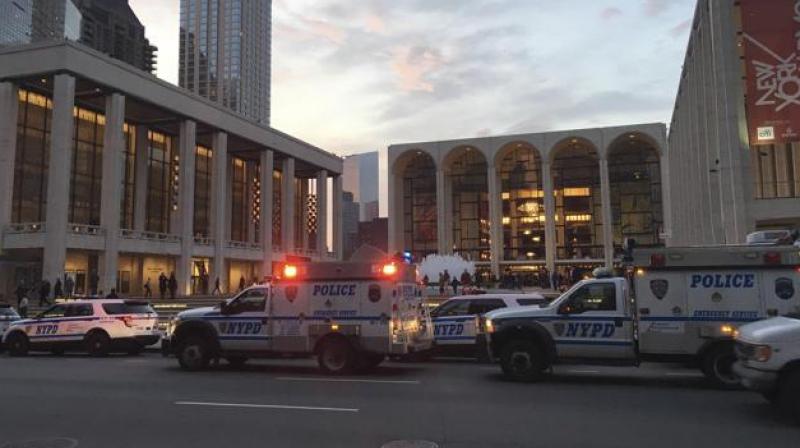Powder sprinkled into New York opera pit may have been human ashes

New York: A powdery substance a man sprinkled into the orchestra pit at New York’s Metropolitan Opera may have been an opera lover’s ashes, police said on Saturday.
The freakish incident during an afternoon performance of Rossini’s “Guillaume Tell” forced Met officials to cancel the rest of the show as well as an evening performance of a second opera.
John Miller, the New York Police Department’s deputy commissioner in charge of intelligence and counterterrorism, said several audience members said a man told them he was there to sprinkle the ashes of a friend, his mentor in the opera.
Miller said the man was in front of the first row of seats when he sprinkled the powder into the orchestra pit during the second intermission when most of the musicians were not present.
He said the powder will be tested, but the possibility that it was in fact human ashes “is certainly an area that we are pursuing”.
Police know who the man is and are reaching out to him, Miller said, adding that the man does not live in New York.
Miller said the disposal of ashes at an opera house may violate city codes but, “I don’t believe at this point that we see any criminal intent here.”
Met general manager Peter Gelb said, “We appreciate opera lovers coming to the Met. We hope that they will not bring their ashes with them.”
Police initially said one person at the opera house requested medical attention. Miller said no one was injured.
The Met canceled Saturday night’s performance of “L’Italiana in Algeri,” another Rossini opera, because of the investigation.
Audience members at “Guillaume Tell” described confusion as the intermission went on longer than usual.
A Met representative at first announced that a technical issue was causing the delay, then returned a few minutes later to announce that the fourth act would not be performed. The audience was told to go home.
“Everybody kind of slowly walked out,” said Dylan Hayden of Toronto. “As we were exiting the building, I noticed the counterterrorism unit going into the building.”
Hayden, who was seated in the 11th row back, added, “The idea that they said that it was a technical error, when I was maybe 15 feet away from a potential dangerous substance, that kind of irks me a little bit. But at no point did I feel an actual threat.”
Micaela Baranello, a musicologist at Smith College in Massachusetts, said some audience members booed when the cancellation was announced and one man chanted, “I want my money back, I want my money back.”
Gelb said people who had Saturday tickets to either opera should call the Met and make arrangements to see a later performance.
Baranello, who spoke by phone from a train headed back to Massachusetts, said that’s not so easy for opera fans who don’t live in New York. “It’s too bad because most of the best music in ‘Guillaume Tell’ is in Act 4, in my opinion,” she said.
“Guillaume Tell,” Rossini’s opera about folk hero William Tell, had not been performed at the Met in more than 80 years before this season. The opera’s overture is known to many Americans as the theme music to the 1950s TV show “The Lone Ranger.”

